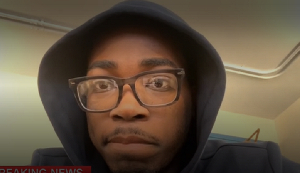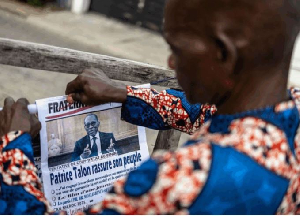Business News of Tuesday, 16 May 2017
Source: classfmonline.com
Too many bottlenecks at ports – Bawumia
Vice President Dr Mahamudu Bawumia has charged port authorities and stakeholders to work to remove bottlenecks and to improve efficiency at the country’s ports.
He said the numerous procedures affect revenue mobilisation at the ports. Dr Bawumia said this at a conference on port efficiency and trade facilitation in Accra on Wednesday, 17 May.
In his keynote address, Dr Bawumia said: “On the cargo clearance front, improvements have been very slow. Cargo duel time is still very high compared to ports in South Africa, let alone talk about Asia or even Europe. We still have delays in the clearance of goods and the attendant cost of such demurrage and rent.
“In 2016, importers paid an estimated amount of some $100million in demurrage charges. I’m told that the last time a similar estimate was conducted in 2013 the demurrage amount was $75million. Whilst government likes revenue, this is not the kind of revenue we want to build this country. It is a punitive cost and inefficiency cost. It is an avoidable cost and it only goes to demonstrate that shippers are not releasing containers to shipping lines in good time.
“There are other inefficiencies and nuisance costs including those used in facilitating clearance through the regulatory agency and the GRA and customs itself. These contribute greatly to the high cost of goods and services in the country and render our exports uncompetitive and most importantly lead to high dissatisfaction among clients.
“These are inefficiencies and man-made bottlenecks, and there are many man-made bottlenecks when you get to the ports. There is not as much automation as we would like to see. There is a number of agencies all around the place and you are being stopped by people sometimes who describe themselves – I don’t know if they are actually national security but they are all over the place.
“These inefficiencies and man-made bottlenecks have direct bearing on the tax revenues collected at the ports. The inefficiencies encourage collusion among some importers, clearing agents, and some customs officers to exploit the system to the detriment of tax revenue. An attempt by the government to deal with the issue of inefficiencies in the clearance process was the introduction of the destination inspection scheme in the single window system.
“Despite these innovations, there are still bottlenecks and there is a sense that the problems of cargo clearance at the ports remain major concerns. The issue of an ineffective customs valuation system still needs to be addressed. The coordination of port activities, system operations, and leakages are all major concerns.”
Wednesday’s conference was to help Ghana learn best practices from countries in Africa and beyond to ease the stress of doing business in the country.












